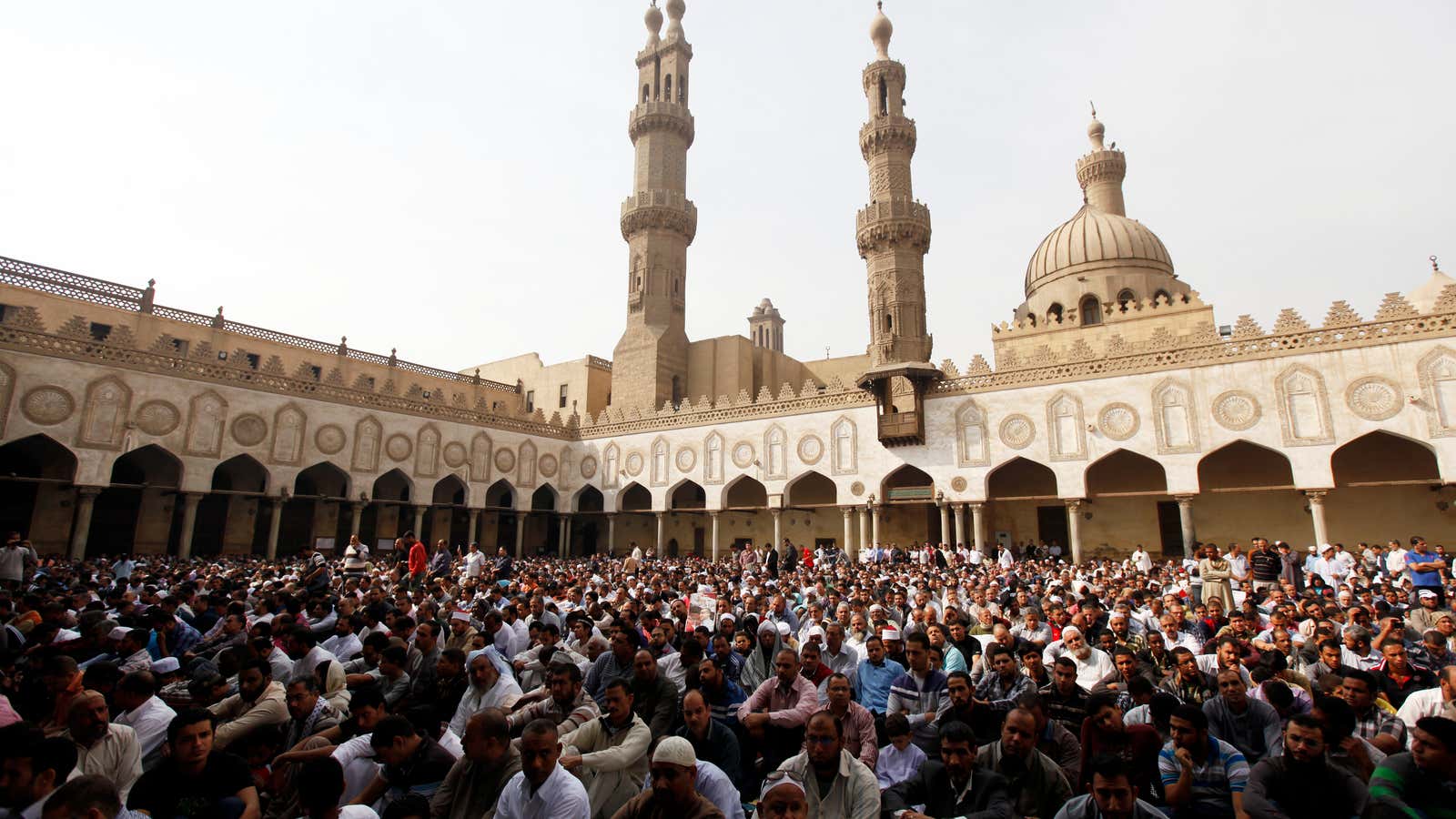In an attempt to stifle dissent and clamp down on what it views as extremist elements, Egypt’s government wants all mosques to deliver one government-scripted, Friday sermon to the country’s 80 million Muslims. The standardization is also seen as a way to limit partisan political messaging at the country’s estimated 108,000 mosques. The sermons (link in Arabic), posted days ahead on the website of the Ministry of Religious Endowments, deal with avoiding illegal money, practicing chastity, and observing cleanliness on a daily basis.
The first lecture (Arabic) was delivered on July 15 by the minister for Religious Endowments, Mohamed Mukhtar Gomaa, at the historic Amr Ibn al-As mosque in the capital Cairo. Gomaa warned the public about taking bribes, and “misusing public money for political, party and sectarian purposes, or illegally seizing public property.”
Later, Gomaa defended the generic lecture saying it “will be contributing to shaping a new way of thinking,” according to the Associated Press. The ministry stated that the mosques across the country should stick to the sermon or use its theme as guidance, and not exceed the 15-20 minutes stipulated.
Egyptians are worried about about how the standard lecture will affect religious expression, with some mosques not observing the order to give the sermon, according to media reports. Sources in the capital who spoke to Quartz said that even though mosques still carried the pre-written sermon, many people were unhappy with it.
Traditionally, Friday sermons address issues affecting the community of the mosque, and as a result can differ substantially from one area to the next. The ruling, many said, disregards that, and overlooks the age, gender, sect, and wealth gaps prevalent among Egypt’s Muslim population.
The second sermon (Arabic), delivered last week (July 23) extols the virtues of self control and chastity as a way to create “a pure, pious and connected society.” The sermon also apprised worshipers of the “dangers of the pen” and the written word, calling it “sharper than the sword.” The third lecture (Arabic), expected to be delivered today on July 29, deals with cleanliness, and removing harmful objects from public spaces.
It’s unclear whether the edict was carried to the letter nationwide. The government said it would put together a committee to inspect and report on the mosques’ compliance with the order. Egypt has in the past closed places of worship, citing fears of extremism and militancy. By controlling the messages being shared in these venues, the troubled government is trying to curb dissent from what it sees as the source of extremist ideology.
The current president Abdel Fattah el-Sisi has repeatedly reached out to the religious leaders to help strengthen his authority.The religious establishment supported president Sisi during the deposition of his predecessor, the democratically elected president Mohamed Morsi, in July 2013. Early this year, the Ministry of Religious Endowments instructed preachers not to call for a protest on the fifth anniversary of the Egyptian revolution on Jan. 25, according to the New York Times. The Egyptian government has also declared the Muslim Brotherhood, to which Morsi belonged, a terrorist organization. It has also cracked down on the Brotherhood’s members, and blocked protests, including peaceful ones, according to Amnesty International.
